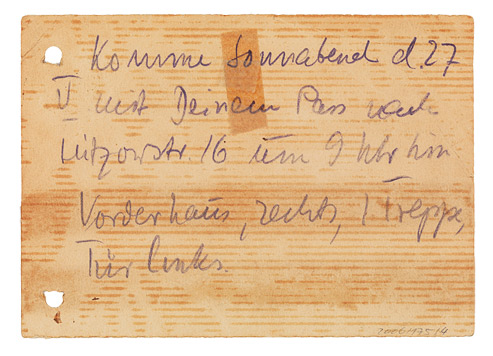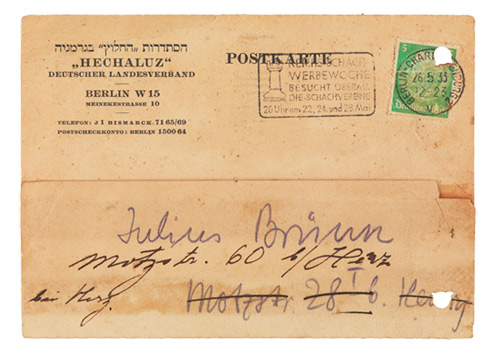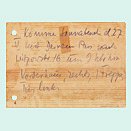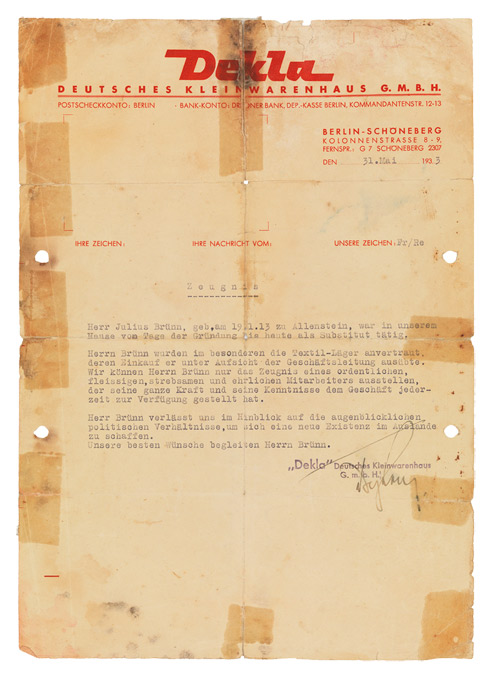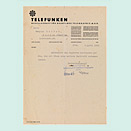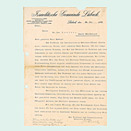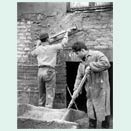Friday
26 May 1933
Message from the Zionist organization Hehalutz to Julius Brünn
Hehalutz organized emigrations to Palestine and arranged for young Jewish people to enter communal training programs in skilled trades or agriculture in so-called Hakhsharah camps, which aimed to prepare would-be emigrants for the life of a so-called pioneer in Palestine (Hakhsharah means "preparation"). After the National Socialists seized power, Hehalutz developed into the largest Jewish youth organization in the German Reich, with a membership that at times numbered as many as 15,000.
On 26 May 1933, Julius Brünn received a postcard with the following message: "On Saturday 27 May, 9 a.m. come with your passport to Lützowstrasse 16, front building, right-hand stairway, first floor, door to the left." For the young man, this brief, rather conspiratorial-sounding message held the promise of bringing him closer to his goal. And indeed, the organization was planning to send him to Palestine, not directly but via France, from where the Aliyah, the emigration to the "Holy Land," was to take place.
The Berlin office of Hehalutz was located at Meinekestrasse 10 in the district of Charlottenburg, where, until 1942, around 30 Zionist organizations had their headquarters. However, Julius Brünn was told to go to Lützowstraße 16 in the Tiergarten district. At this address, the Jewish community rented rooms in the front building and a liberal synagogue was located in the back. On 27 May, Julius was to find out here what plans Hehalutz had for him.
Franziska Bogdanov
